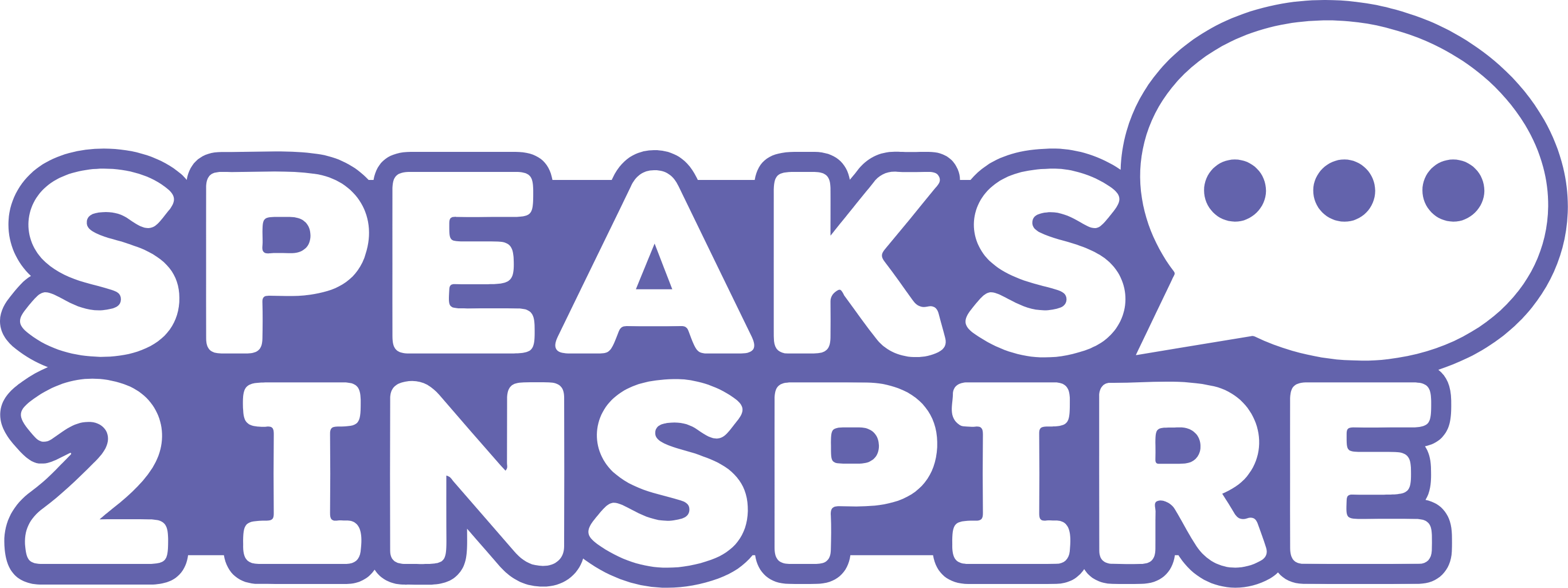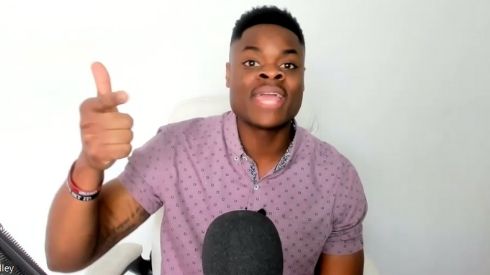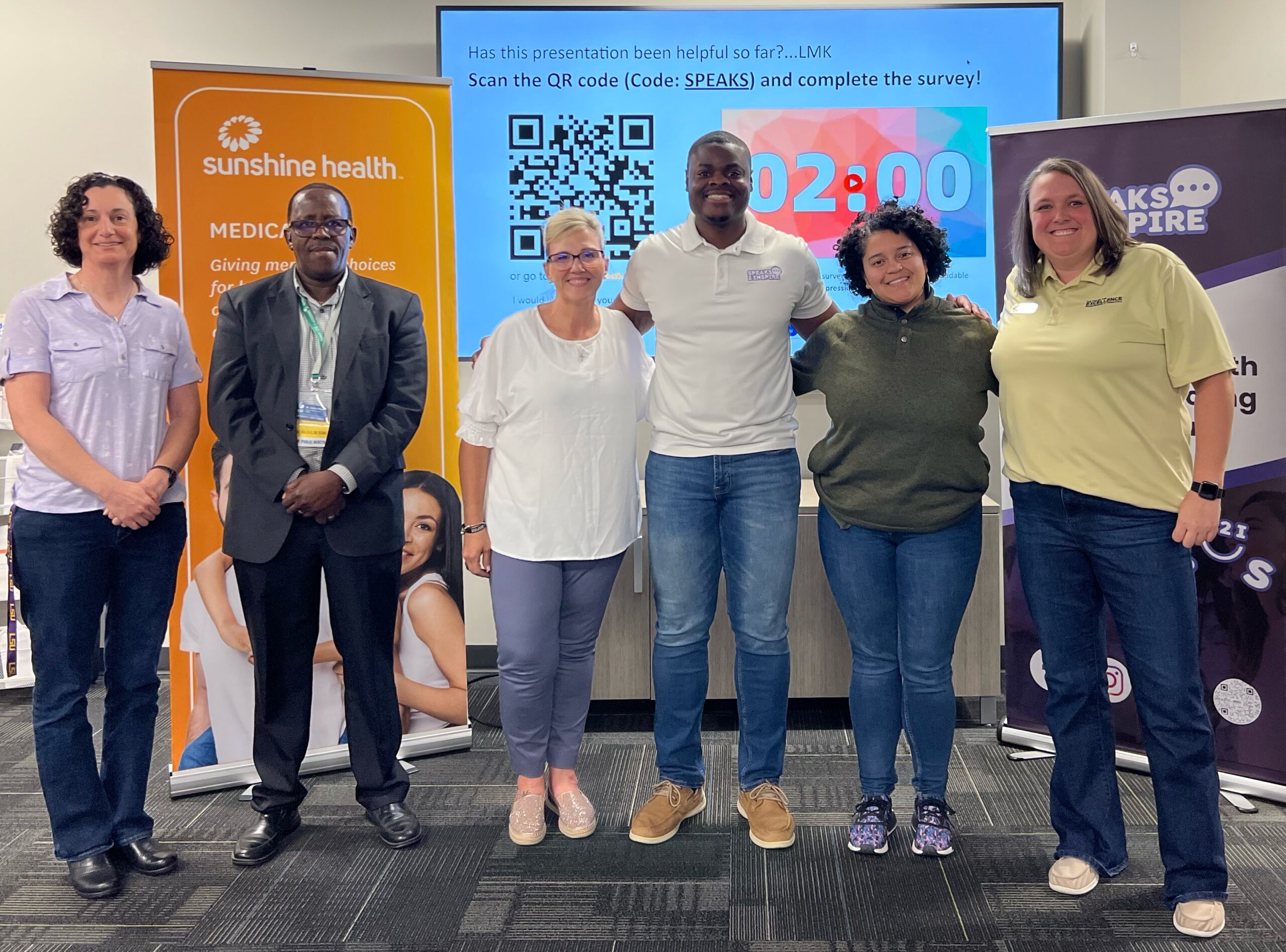This post was written by San Diego City Times: https://sdcitytimes.com/campus-life/2022/03/01/city-college-shines-a-light-on-mental-health-struggles-in-black-communities/
If it weren’t for meeting two mentors that looked like him while working as a substitute teacher, Myles Childs may have never gone into the field of mental health.
Childs, a student mental health counselor at San Diego City College, originally moved to San Diego out of high school for the Marine Corps with dreams of someday becoming a chef.
But after working with students and therapists at Reach Academy in El Cajon he realized where he wanted to be.
“I met two therapists. One was a black woman and one was a black man,” Childs said. “It really blew my mind, the work that they did.
“They really inspired me, they pushed to have conversations with the students and by the end of that school year I was finishing up my undergrad and chose to get my master’s in Marriage and Family Therapy.”
Childs, who works as a mental health counselor specifically for students in the Umoja program at City, knows from experience how impactful having mentors who looked like him was and he hopes that by showing up he can inspire change in the students he works with as well.
“One of the conversations I had specifically with the Umoja faculty is that just my presence in the classroom changes the atmosphere,” Childs said. “Students feel a little more comfortable bringing up questions and knowing that somebody that looks like them is there to talk. I want to keep this going so we can break down as many barriers as we can.”
To help shine a light on the stigma around mental health in Black communities, City hosted multiple events throughout Black History Month aimed at breaking down some of these barriers.
Mental Health Resource Specialist Janisha Street led the event Dispelling Myths Around Mental Health in the Black Community sponsored by the Student Health Center and was met with silence from attendees when she shared the statistic that only 4% of psychologists practicing in the United States today are Black.
The lack of Black practitioners in the field, Street added, and long perpetuated myths within certain Black communities around mental health care are big contributors to keeping people from reaching out for help when they need it.
“(That) our pain threshold was higher than other races was a common sentiment among my family,” event attendee Melvin Merritt said, referring to a widely debunked myth that struggling with mental health is a sign of weakness. “We’ve had to overcome so much as a people, we cannot worry about the small things.”
Prayer being the only remedy for mental health struggles was another myth Street has come across often in her work and one that resonated with many in attendance. Prayer, Street explained, should be part of a multi-pronged approach to mental wellness but not the only remedy for healing.
Mental health activist and speaker Abraham Sculley echoed this sentiment at Combating the Stigma of Mental Health, an event hosted by City Active Minds Chapter, the Student Health Center and Umoja.
Sculley, who grew up in Florida with Jamaican parents and describes prayer in his household as “core to who we were,” uses prayer in tandem with other methods to stay healthy. But he stresses that prayer is not enough.
While getting his bachelor’s in psychology from the University of West Florida, the typically high-energy Sculley started experiencing racing thoughts, insomnia, loss of appetite and lack of motivation to even get out of bed. After reluctantly opening up to his very concerned best friend, Sculley sought help at the student health center and began medication and therapy.
Sculley’s journey to healing, by his own account, was a long process. But he made changes in his life and partnered with healthcare professionals and was able to slowly improve. He now spends his time educating others about mental illness by telling his story.
Journaling, being in nature, eating healthy foods, challenging negative thoughts, creating routines, practicing mindfulness and deep breathing are some of the tools Sculley said help keep his mind well.
For those struggling and not sure what to do, Sculley emphasizes the importance of simply reaching out.
“You can’t see the picture when you are inside the frame,” Sculley said. “Identify who is in your support network and reach out.”
If you are in need of counseling, City Student Mental Health offers appointments for individuals, couples and families. The appointments are free to students and will not be recorded on their academic records. Click here or call (619) 388-3055 to schedule an initial screening appointment.
To immediately connect with a trained professional for mental health crisis intervention, services and information, call the San Diego Access and Crisis Line 24 hours a day at 1-888-724-7240.
The crisis line is available in 150 different languages and is also accessible via live chat Monday through Friday from 4p.m to 10 p.m.
Suicide Lifeline: If you or someone you know may be struggling with suicidal thoughts, you can call the U.S. National Suicide Prevention Lifeline at 800-273-TALK (8255) any time of day or night, text COURAGE to the Crisis Text Line at 741-741 or chat online.




